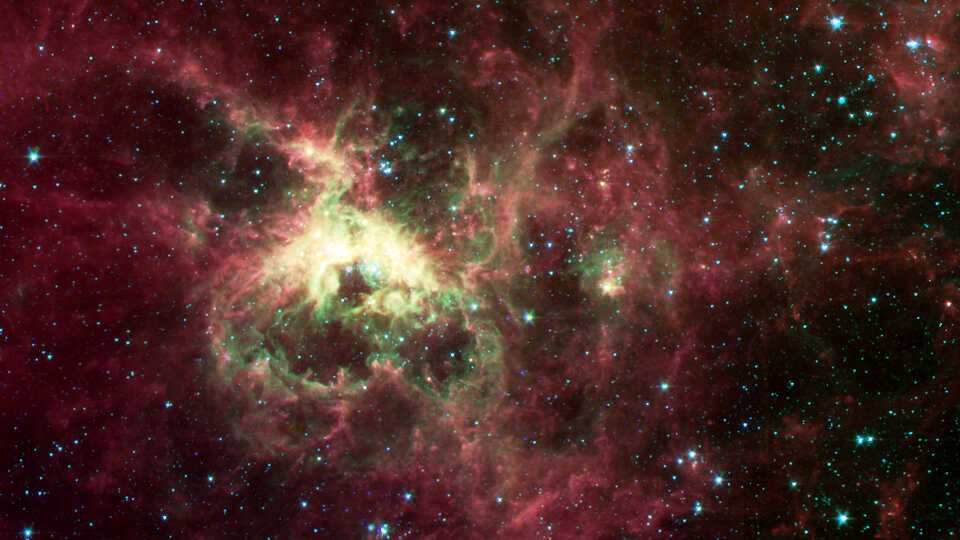Mark Krumholz - Professor, Astronomy & Astrophysics Dept. UCSC
We’ve all learned that space is an empty vacuum, but it’s not. The space between the stars in our Galaxy contains, on average, about 1 atom per cubic centimeter. That’s a better vacuum than the best vacuum chamber we know how to make, but there are a lot of cubic centimeters in interstellar space, so the mass of all the gas between the stars adds up to about 10% of the mass of all the stars put together. The temperature of this gas varies enormously from place to place in the Galaxy, with temperatures as high as millions of degrees and as low as a few degrees above absolute zero. In the coldest regions of interstellar space, over millions of years gravity is able to draw the atoms together into immense clouds that ultimately condense into clusters of new stars. In our Galaxy, this process produces stars at a rate of about 1 new Sun per year, the stars it makes are typically the size of the Sun or a little smaller.
While we understand how this happens in general outline, many fundamental questions remain unanswered. What sets the rate at which stars form? What determines the final sizes of the individual stars? Where did our Sun form, and what happened to its siblings, the stars that formed out of the same cloud? In this talk I will describe what we currently know, and what we don’t, about the birth of new Suns.
